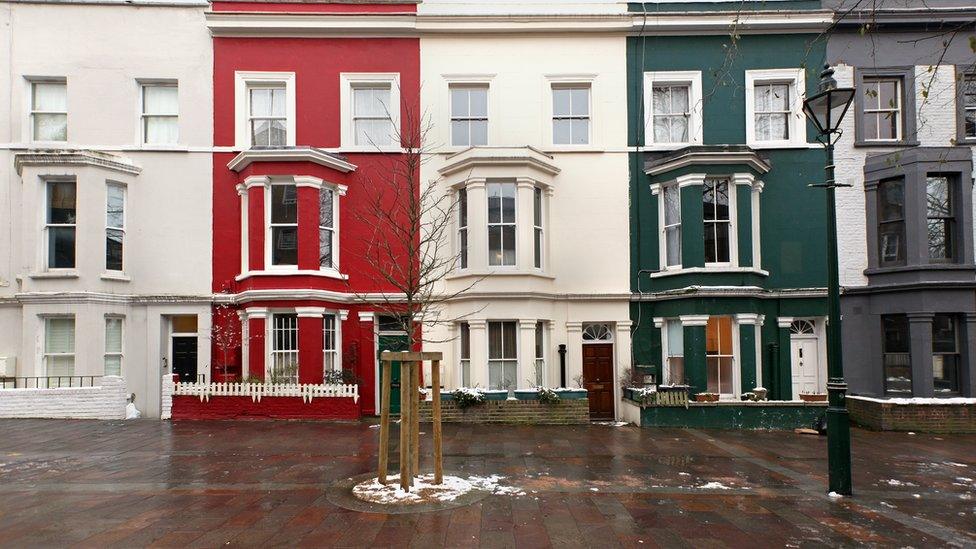Help to Buy loan guarantee scheme comes to an end
- Published

One of the government's flagship home ownership programmes ends on Saturday, amidst both praise and criticism.
The Help-to-Buy Mortgage Guarantee scheme is likely to have helped more than 100,000 individuals or couples buy a home.
The Council of Mortgage Lenders said it had worked "exceptionally well", making mortgages more available when it started in October 2013.
However Shelter has argued, external that the scheme helped to push up house prices.
Under the programme, borrowers were able to get a mortgage with just a 5% deposit. If those borrowers were unable to make payments, the government promised to compensate the lender.
But around 30 banks or building societies now offer similar high loan-to-value loans, so the Bank of England declared in September that the scheme is no longer necessary.
The Help-to-Buy Equity Loan scheme - which is only available on new-build homes - will remain on offer until 2020, in England alone.

Have you used this scheme? If so, email us at haveyoursay@bbc.co.uk, external.

Final cost
So far the Mortgage Guarantee scheme has cost the taxpayer a relatively small amount of money.
Up to 30 September, only two home-owners had defaulted on their mortgages, meaning that the Treasury has had to pay out just £17,411 to compensate mortgage lenders.
In the long run it has set aside a potential £12bn to pay out in compensation.
With interest rates at record lows, default rates have also been minimal.
However when interest rates eventually rise, more borrowers are likely to default on mortgage payments, so the Treasury may have to pay out more.
The guarantee on such mortgages - and thus taxpayers' liability - lasts for seven years after they are taken out.
As a result the Treasury won't know the final cost of the scheme until June 2024.
